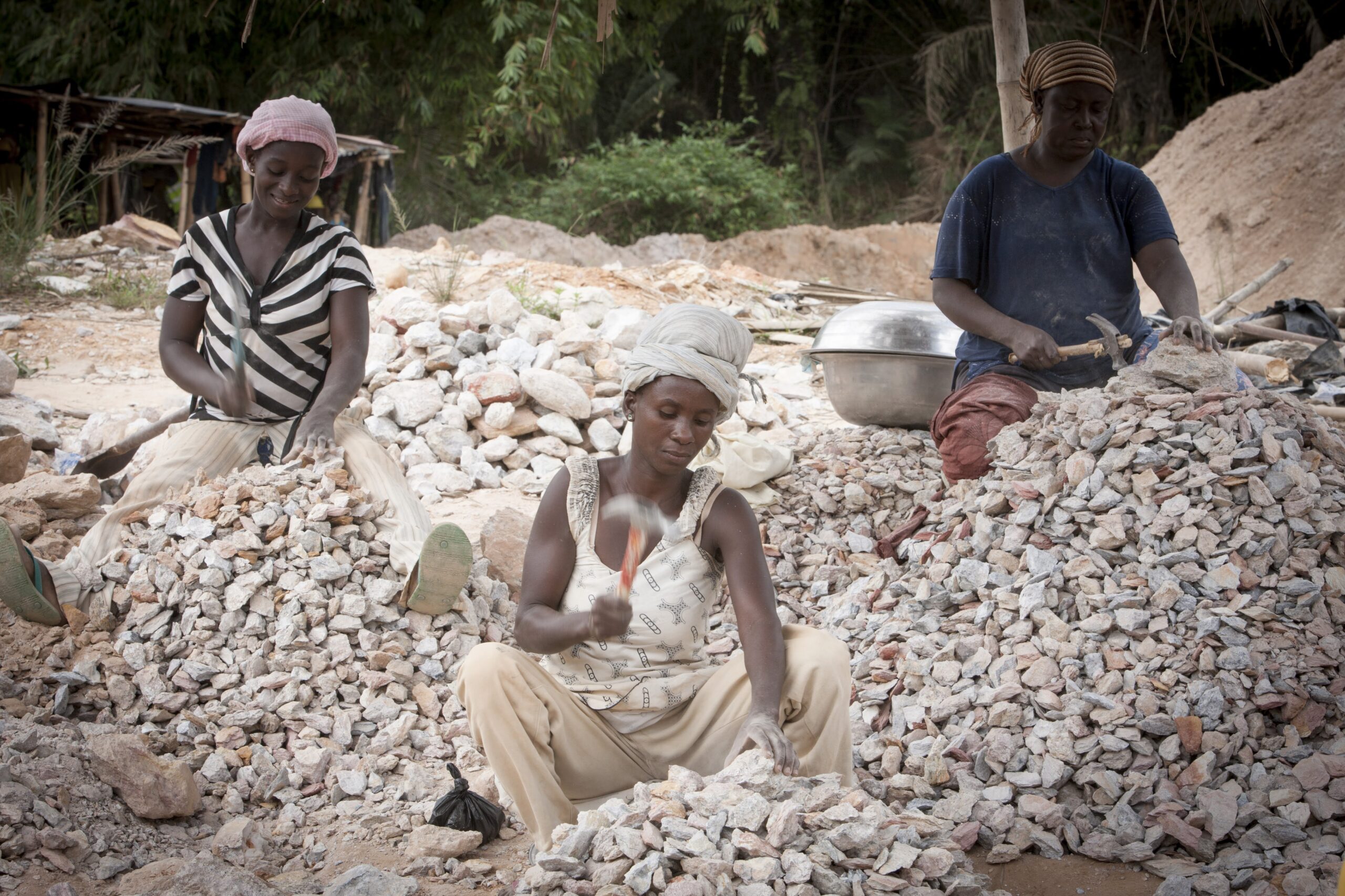The credits system, to be launched in January 2025, provides companies who use gold in their products with an impactful way to contribute to a better gold mining industry.
Kari-Anne Sandness, Corporate Engagement Manager at Solidaridad, says: “Investing in responsible gold credits offers companies a complementary solution to the longer-term commitment of tracing their supply chains. Credits allow them to support the improvement of the artisanal and small-scale mining industry without physically using its gold in their products.”
Lisa Minère, Project Manager Fair Mining at Fairphone adds: “In a context of untransparent and complex supply chains, investing in Responsible Gold Credits provides Fairphone with a relatively simple and low-risk way to take responsibility for our material use.”
Funding sustainable change in Tanzania’s artisanal and small-scale gold mining industry
Every credit a company buys represents a quantity of more responsibly mined artisanal and small-scale gold produced by a selected group of mines in Tanzania’s Geita region. With the support of The Impact Facility, mine operators decide where they most need to invest their credit funds from a set of four impact areas:
- Good governance
- Safe and dignified working conditions
- Environmental protection
- Inclusive economic development
Participating mines have a well-established working relationship with The Impact Facility and Solidaridad. Only legitimately operating mines that have demonstrated an active willingness to improve their practices are part of the responsible gold credit system. They must also meet minimum environmental, social and governance performance criteria.
Focusing on mines with the most potential for positive impact
As the participating mines need significant support to work towards best practice standards, and they produce only small quantities of gold, they are usually beyond the reach of existing direct sourcing and certification schemes.
“Responsible Gold Credits give Fairphone an opportunity to fund impactful projects. By focusing our efforts on artisanal mines that need the most support and investment to reach best practice standards, we have a greater chance of creating positive change,” says Lisa Minère.
Tanzania’s 1-1.5million-strong artisanal and small-scale mining community produces about a third of its gold. A further 4–5 million people’s livelihoods are estimated to be indirectly dependent on artisanal and small-scale gold mining. Tanzania’s large artisanal and small-scale gold mining community, along with its supportive government that’s recently invested in extensive formalisation, makes it an ideal landscape for creating real and long-lasting change within the industry.
Take part in the Responsible Gold Credits Programme to create sustainable change
Credits cost USD 5 per gram. They represent the same quantity of artisanal and small-scale gold that has been produced to a minimum ESG standard, which aligns with OECD Due Diligence Guidance Annex II and the CRAFT Code Modules 1-3.
Investing in responsible gold credits gives companies the opportunity to:
- address human rights and environmental supply chain risks associated with artisanal and small-scale mining
- support continuous improvement at artisanal and small-scale gold mines, supporting their operations to reach environmental, social and governance standards.
- increase the supply of responsible artisanal and small-scale gold, in line with the companies’ gold use.
Calvin Laing, Gold Programme Manager at The Impact Facility, says: “Whether using gold to produce jewellery, or for components in cars or mobile phones, the Responsible Gold Credits system presents companies with an opportunity to forge the way forward to a safer, more responsible artisanal and small-scale gold mining industry.”
The credit system pilot has been developed under a project implemented by Solidaridad since 2021, funded by the Netherlands Enterprise Agency (RVO). In addition to supporting 10 artisanal and small-scale mines in the Geita region with improved and responsible production practices, we also developed this credit system as a tool to continue the support to the mines after the project ends.
The deadline for companies to sign up to be part of the first cohort investing in Tanzania’s artisanal and small-scale gold mines is Friday 20 December 2024.
Email kari-anne.sandness@solidaridadnetwork.org to take part in this new initiative.
For more information about the credit system, please visit the programme website page.

